Filter by
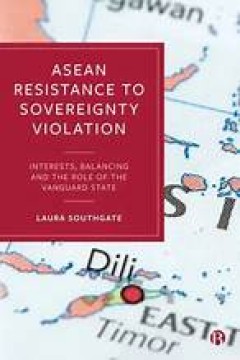
ASEAN Resistance to Sovereignty Violation
Available Open Access under CC-BY-NC licence. Examining how the Association of Southeast Asian Nations’ (ASEAN) has responded to external threats over the past 50 years, this book provides a compelling account of regional state actions and foreign policy in the face of potential sovereignty violation. The author draws on a large amount of previously unanalysed material, including declassified…
- Edition
- -
- ISBN/ISSN
- -
- Collation
- -
- Series Title
- -
- Call Number
- -
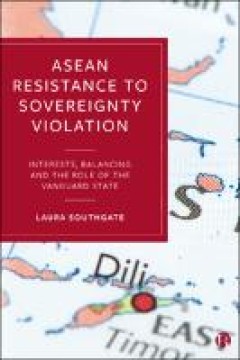
ASEAN Resistance to Sovereignty Violation
Available Open Access under CC-BY-NC licence. Examining how the Association of Southeast Asian Nations’ (ASEAN) has responded to external threats over the past 50 years, this book provides a compelling account of regional state actions and foreign policy in the face of potential sovereignty violation. The author draws on a large amount of previously unanalysed material, including declassified…
- Edition
- -
- ISBN/ISSN
- -
- Collation
- -
- Series Title
- -
- Call Number
- -
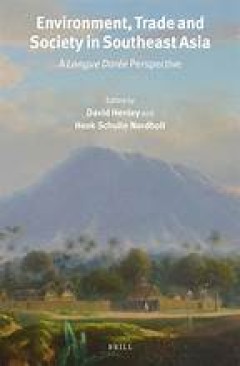
Environment, Trade and Society in Southeast Asia
In Environment, Trade and Society in Southeast Asia: A Longue Durée Perspective, eleven historians bring their knowledge and insights to bear on the long Braudelian sweep of Southeast Asian history. In doing so they seek both to debunk simplistic assumptions about fragile traditions and transformational modernities, and to identify real repeating patterns in Southeast Asia's past: clientelisti…
- Edition
- -
- ISBN/ISSN
- 978-90-04-28805-8
- Collation
- oer.unej.ac.id
- Series Title
- Verhandelingen van het Koninklijk Instituut voor Taal-, Land- en Volkenkunde, Volume: 300
- Call Number
- -
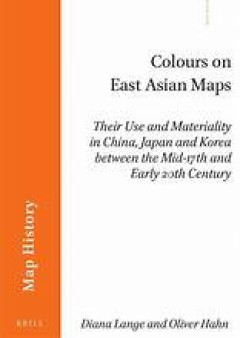
Colours on East Asian Maps
With a multi-perspective approach and transdisciplinary methods (humanities and sciences), this book offers an in-depth and systematic study of hand-drawn and hand-coloured maps from East Asia. Map colouring provides an insight into past societies, landscapes and territories. Colour is an important key to a more precise understanding of the map’s content, purposes and uses; moreover, colours …
- Edition
- -
- ISBN/ISSN
- 978-90-04-54562-5
- Collation
- oer.unej.ac.id
- Series Title
- Brill Research Perspectives in Humanities and Social Sciences Brill Research Perspectives in Map History
- Call Number
- -
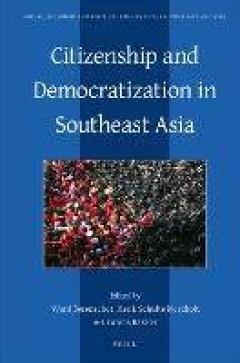
Citizenship and Democratization in Southeast Asia
Citizenship and Democratization in Southeast Asia redirects the largely western-oriented study of citizenship to postcolonial states. Providing various fascinating first-hand accounts of how citizens interpret and realize the recognition of their property, identity, security and welfare in the context of a weak rule of law and clientelistic politics, this study highlights the importance of stud…
- Edition
- -
- ISBN/ISSN
- 978-90-04-32966-9
- Collation
- oer.unej.ac.id
- Series Title
- Social, Economic and Political Studies of the Middle East and Asia, Volume: 115
- Call Number
- -
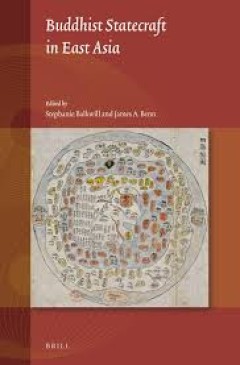
Buddhist Statecraft in East Asia
Buddhist Statecraft in East Asia explores the long relationship between Buddhism and the state in premodern times and seeks to counter the modern, secularist notion that Buddhism, as a religion, is inherently apolitical. By revealing the methods by which members of Buddhist communities across premodern East Asia related to imperial rule, this volume offers case studies of how Buddhists, their t…
- Edition
- Volume: 6
- ISBN/ISSN
- 978-90-04-51022-7
- Collation
- -
- Series Title
- -
- Call Number
- -
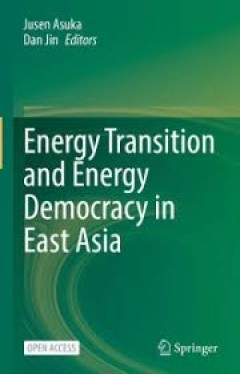
Energy Transition and Energy Democracy in East Asia
Today, wind powers and solar powers have become the main stream of energies. Everyone, from major electric power utilities to mega capital investors, has entered the renewable energy sector, increasingly and rapidly expanding the mass capital investment projects in the world. It is not rare to find cases of such mega projects developing confrontations with local communities. Since 1990s, th…
- Edition
- -
- ISBN/ISSN
- 9789811902802
- Collation
- IX, 117
- Series Title
- -
- Call Number
- -
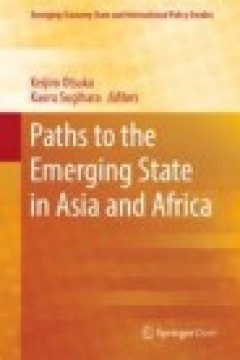
Paths to the Emerging State in Asia and Africa
This book addresses the issue of how a country, which was incorporated into the world economy as a periphery, could make a transition to the emerging state, capable of undertaking the task of economic development and industrialization. It offers historical and contemporary case studies of transition, as well as the international background under which such a transition was successfully made (or…
- Edition
- 1
- ISBN/ISSN
- 9789811331312
- Collation
- XXI, 292 hlm,: ill, lamp;
- Series Title
- -
- Call Number
- -

Demographic and Family Transition in Southeast Asia
- Edition
- -
- ISBN/ISSN
- 978-3-030-85679-3
- Collation
- -
- Series Title
- -
- Call Number
- -
- Edition
- -
- ISBN/ISSN
- 978-3-030-85679-3
- Collation
- -
- Series Title
- -
- Call Number
- -

Prospects for monetary cooperation and integration in East Asia
East Asian countries were notably uninterested in regional monetary integration until the late 1990s, when the Asian financial crisis revealed the fragility of the region's exchange rate arrangements and highlighted the need for a stronger regional financial architecture. Since then, the countries of East Asia have begun taking steps to explore monetary and financial cooperation, establishing s…
- Edition
- -
- ISBN/ISSN
- 9780262265980
- Collation
- 1 online resource (xvi, 320 pages) :illustrations
- Series Title
- -
- Call Number
- -
 Computer Science, Information & General Works
Computer Science, Information & General Works  Philosophy & Psychology
Philosophy & Psychology  Religion
Religion  Social Sciences
Social Sciences  Language
Language  Pure Science
Pure Science  Applied Sciences
Applied Sciences  Art & Recreation
Art & Recreation  Literature
Literature  History & Geography
History & Geography